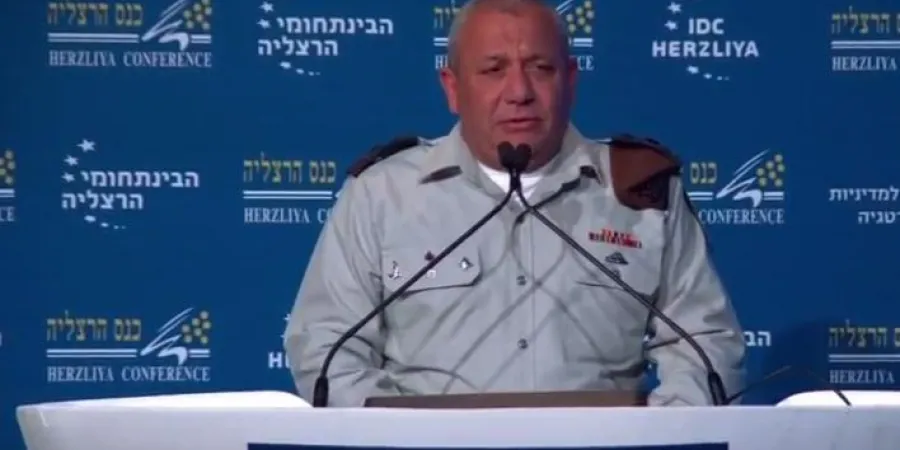"Hezbollah Receives $800 Million from Iran Every Year"
IDF Chief of General Staff spoke at the Herzliya Conference and referred to the strategical threats on Israel. During his speech, Lt. Gen. Eizenkot said that Hezbollah continues to be the biggest threat to Israel's security
IsraelDefense
| 21/06/2017
IDF Chief of General Staff Gadi Eizenkot spoke yesterday at the Herzliya Conference and clarified that despite recent publications in the foreign media, Israel is not involved in the fighting in Syria for either side. According to Eizenkot, Israel’s interest in the war across the border is that there will be a functioning entity in Syria.
In his speech, Eizenkot referred to all the arenas relevant to Israel’s security. He distinguished between the threats close to Israel in Gaza and Lebanon and the threats further away, mainly from Iran. "The strengthening of Hezbollah near the northern border is the biggest threat to Israel’s security today," he said.
"Hezbollah has built capabilities, it is grossly violating UN Resolution 1701, and if we look at southern Lebanon, we see this organization deployed in 240 villages and towns, and there are tens of thousands of rockets there," said the Chief of Staff.
"We have a clear interest in preventing the transfer of advanced weapons by Hezbollah. As has been published, there were actions to prevent the transfer of advanced weapons meant to harm Israel. This was the case in recent years, and it will be so in the future," he added, without going into further details.
Lt. Gen. Eizenkot said that Hezbollah receives $800 million from Iran each year, and stated, "Senior-level officials in the country declared that its goal was global Islamic rule. Iran sees itself as a superpower and is trying to create a Shi'ite crescent through Iraq, Syria, and Lebanon. It still wants a nuclear weapon and the global effort must focus on preventing Iran from becoming a North Korea."
[Sources: Jerusalem Online, Arutz Sheva]
IDF Chief of General Staff spoke at the Herzliya Conference and referred to the strategical threats on Israel. During his speech, Lt. Gen. Eizenkot said that Hezbollah continues to be the biggest threat to Israel's security
IDF Chief of General Staff Gadi Eizenkot spoke yesterday at the Herzliya Conference and clarified that despite recent publications in the foreign media, Israel is not involved in the fighting in Syria for either side. According to Eizenkot, Israel’s interest in the war across the border is that there will be a functioning entity in Syria.
In his speech, Eizenkot referred to all the arenas relevant to Israel’s security. He distinguished between the threats close to Israel in Gaza and Lebanon and the threats further away, mainly from Iran. "The strengthening of Hezbollah near the northern border is the biggest threat to Israel’s security today," he said.
"Hezbollah has built capabilities, it is grossly violating UN Resolution 1701, and if we look at southern Lebanon, we see this organization deployed in 240 villages and towns, and there are tens of thousands of rockets there," said the Chief of Staff.
"We have a clear interest in preventing the transfer of advanced weapons by Hezbollah. As has been published, there were actions to prevent the transfer of advanced weapons meant to harm Israel. This was the case in recent years, and it will be so in the future," he added, without going into further details.
Lt. Gen. Eizenkot said that Hezbollah receives $800 million from Iran each year, and stated, "Senior-level officials in the country declared that its goal was global Islamic rule. Iran sees itself as a superpower and is trying to create a Shi'ite crescent through Iraq, Syria, and Lebanon. It still wants a nuclear weapon and the global effort must focus on preventing Iran from becoming a North Korea."
[Sources: Jerusalem Online, Arutz Sheva]



